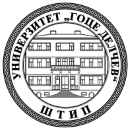MECHANISMS OF YOUTH POLITICAL COMMUNICATION IN VIRTUAL SPACE AND ITS IMPACT ON POLITICAL SUSTAINABILITY: “A THING-IN-ITSELF” OR A FACTOR OF STABILITY?

The main research goal of the report deals with a comprehensive assessment of the mechanisms of youth political communication in the virtual space. The implementation of this goal will allow, in turn, to assess the threats and opportunities (positive effects) of such communication on the stability of the socio-political system of a society, to determine the degree and direction of the possible influence.
The study uses both the latest data on the topic (secondary analysis) and own empirical research based on Russian material. The method of empirical research is a personal standardized interview, the sample size is 1000 respondents who are representatives of young people aged 14 to 30, permanent residents of the studied regions. Within the sampling frame, the distribution by the main indicators is strictly proportional to the official data on average for the regions.
The relevance of the study seems to be high, since it involves a combination of a fairly complete overview of the main directions of research on the role of youth participation in the socio-political processes and the involvement of specific empirical studies of 2018–2019. At the same time, it is important to understand that in modern political science, one of the significant tasks for understanding and predicting the development and sustainability of socio-economic and political systems is the study of the values and attitudes of future subjects of political innovations, and young people are in this role.
As a result, the study should identify the main mechanisms of political communication, including the most popular sources of political information, fix the main trends in the increase and decrease in the popularity of specific information sources, analyze the main socio-demographic factors that affect the priority of using certain mechanisms, and also identify the main channels of political mobilization of youth and the features of their functioning. The findings of the ongoing study are to be presented in the report.
Key words: political communication, youth policy, stability, virtual space, political behavior
